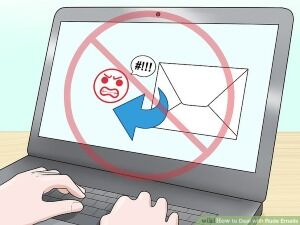Warning: Trying to access array offset on value of type bool in /home/daneciolino/public_html/lalegalethics/wp-content/plugins/footnotation/footnotation.php on line 193

Zealous representation is often thought to be the defining characteristic of a successful lawyer.1 Moreover, a Louisiana lawyer often justifies the lawyer’s professional conduct by reference to the perceived obligation to represent clients zealously. However, a lawyer attempting to justify unprofessional and uncivil conduct in violation of the Rules of Professional Conduct will not get very far by invoking the refrain of “zealous representation” as a defense.
A Louisiana Hearing Committee Recommends Sanctions for Lawyer Who Communicated with Represented Party
A Louisiana lawyer recently learned the hard way that communicating with a represented party without obtaining opposing counsel’s consent is not justified by “zealous representation.” See In re David Band, Jr., Docket No. 21-DB-062 (Hearing Committee Report Sept. 6, 2022). During the civil litigation underlying the disciplinary complaint, the lawyer contacted opposing counsel’s client several times without obtaining opposing counsel’s consent to the communication. See La. Rules of Prof’l Conduct, r. 4.2 (Communication of Person Represented by Counsel). The lawyer communicated with opposing counsel’s client through social medial, telephone, and email. Further, the messages are easily characterized as disturbing and hostile in nature.
The lawyer repeatedly sent vulgar messages about the litigation to opposing counsel’s client without obtaining opposing counsel’s consent to the communication. In one communication the lawyer ‘advised’ the litigant that his client “sought a usaf*uck.” In another, the lawyer told the litigant to “wear something lowcut” to trial. Predictably, the litigant filed a disciplinary complaint with the Office of Disciplinary Counsel citing the lawyer’s unprofessional conduct.
In response to the disciplinary complaint, the lawyer claimed that he did not know that litigant had a lawyer. However, the lawyer’s own messages to the litigant contradicted these claims. For example, the lawyer stated in one Facebook message that he knew that the litigant was represented by a lawyer. Considering the lawyer’s own statements to the litigant, the hearing committee rejected the lawyer’s claims that he was unaware of the representation.
For two reasons, the hearing committee concluded that the lawyer’s conduct warranted sanctions. First, the committee determined the lawyer’s conduct violated Louisiana Rule of Professional Conduct rule 4.2 prohibiting unauthorized communications with a person represented by counsel. See La. Rule of Prof’l Conduct, r. 4.2. Second, the hearing committee concluded that the lawyer’s claim to the Office of Disciplinary Counsel that he did not know the litigating was represented be counsel violated Rule 8.1(a), which prohibits knowingly making a false statement of material fact during a disciplinary investigation. See La. Rule of Prof’l Conduct, r. 8.1(a).
The committee recommended a six-month suspension as well as an evaluation from a mental health professional.
Conclusion
Firing off a quick email can easily land a Louisiana lawyer in hot water. Louisiana lawyers should consider adopting a “24-hour rule” for responding to emails that boil their blood. The rule is as follows: when you receive an email that pushes your buttons, do not answer it for at least 24-hours. Chances are you will likely cool down before hitting that send button. Moreover, lawyers should obviously refrain from sending vulgar emails to anyone, including represented parties. Implementing these two simple rules of thumb can save a lawyer from the time, cost, and energy that goes into defending against a disciplinary complaint. Then again, some lawyers probably don’t give a usaf*ck.
- Special thanks to our Fall 2022 Research Assistant Alexis Topel for researching and writing the initial draft of this post. ↵
